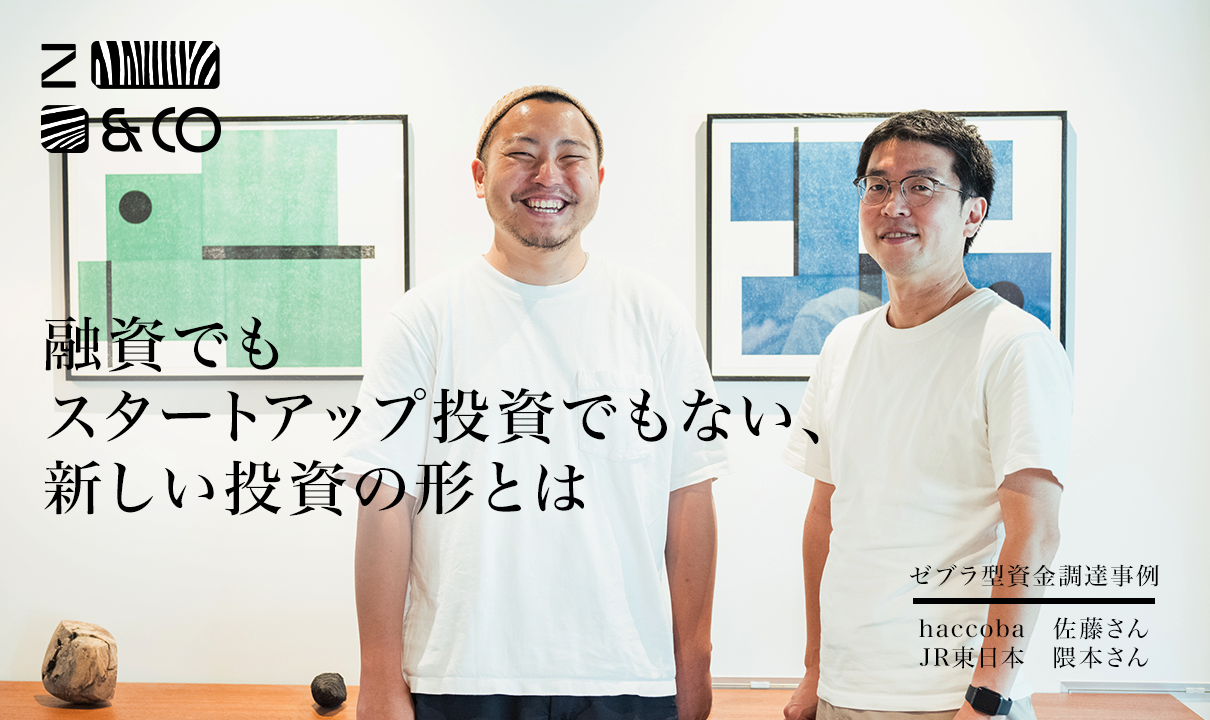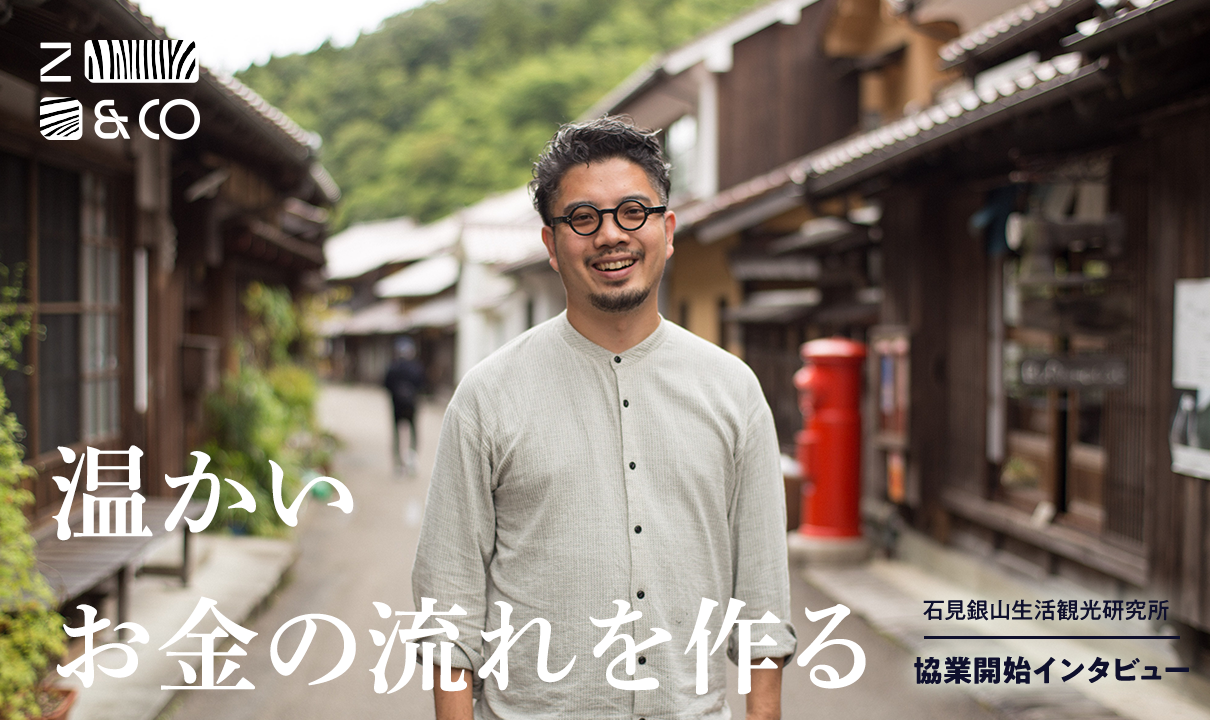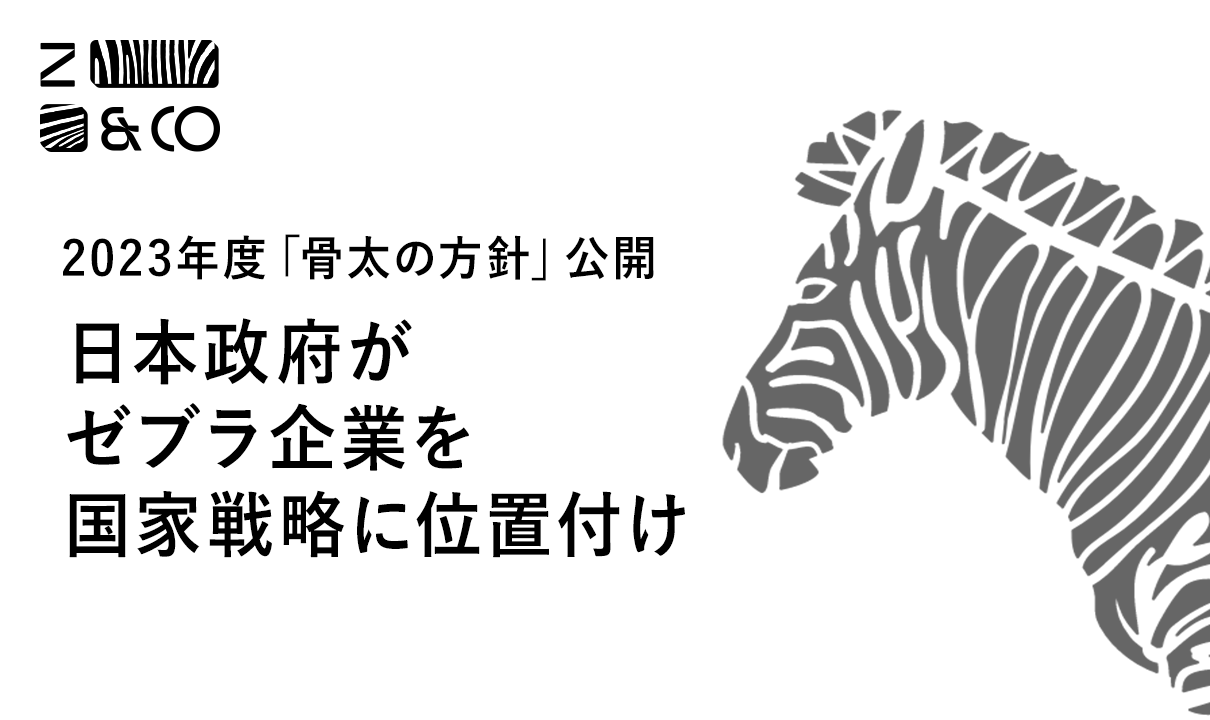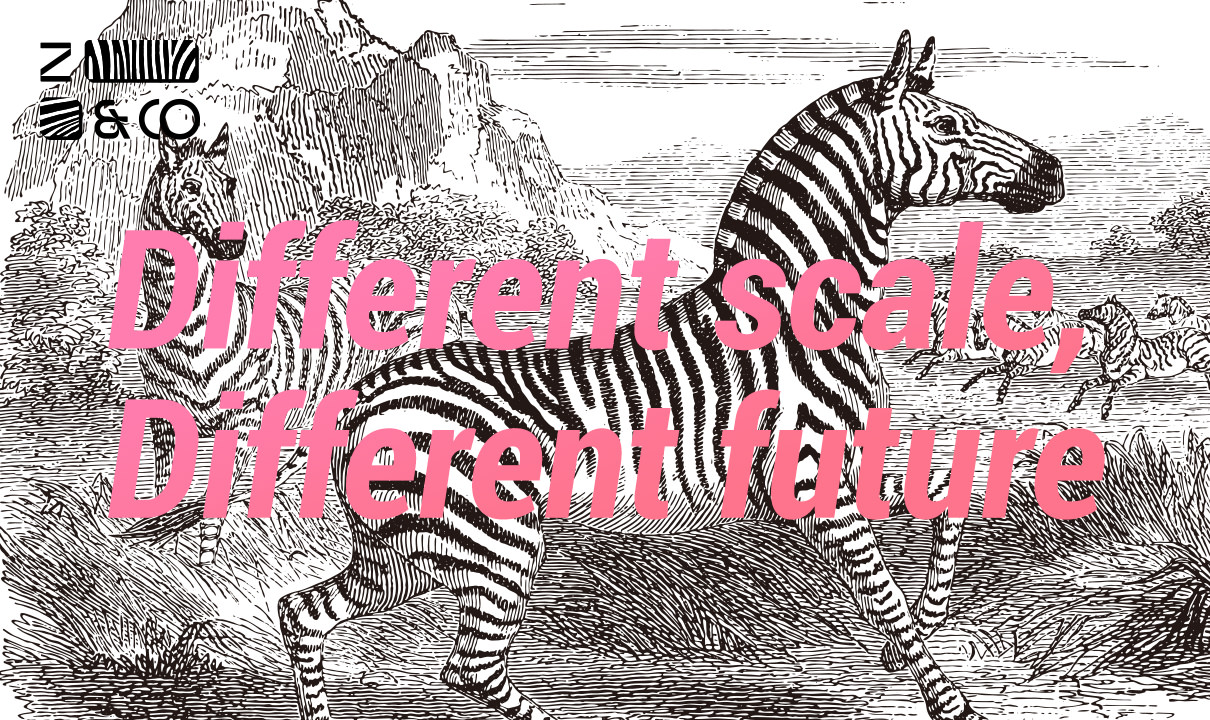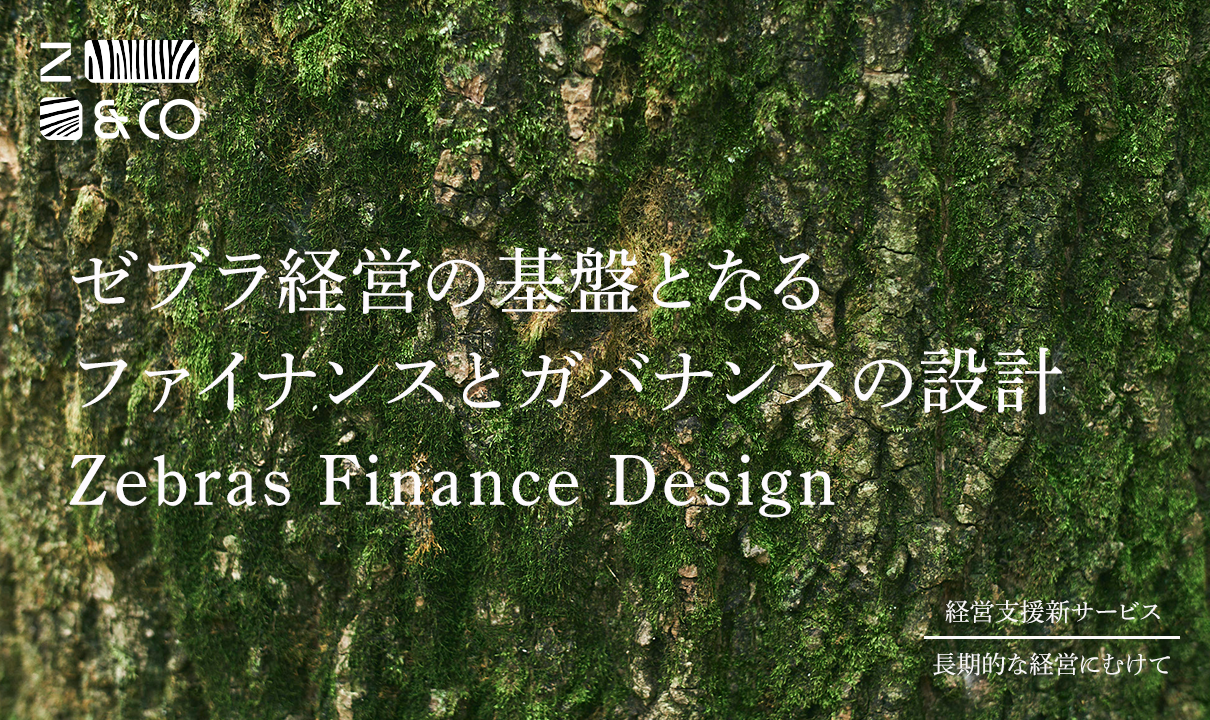
2023.09.21 ZEBRAS
Creating ‘Happy Scenarios’ in Japan’s Regions to Change the World!: Zebras and Company’s Fourth Investment is in NEWLOCAL, a Company Transforming Real Estate While Building Communities
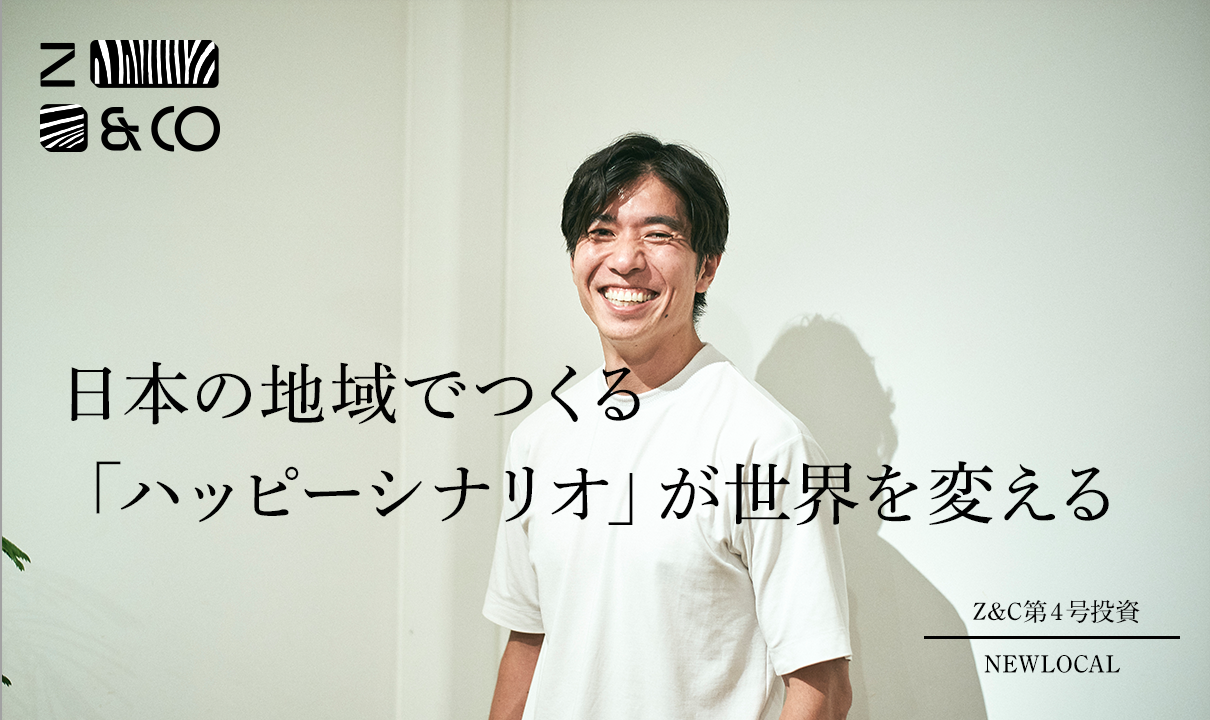
In September 2023, Zebras and Company invested in NEWLOCAL, a company focused on community development with an emphasis on real estate development.
The investment involved Zebras and Company holding NEWLOCAL’s common stock, but we kept the form of financial/social returns flexible to consider different possibilities for the future. Moreover, beyond economic returns, Zebras and Company and NEWLOCAL are collaboratively exploring new forms of finance that contribute to community development, with the intention of researching and developing investment schemes that can be applied to support other regions and Zebra companies.
Why did Zebras and Company choose NEWLOCAL as its fourth investment, and what is this new form of finance they are researching and developing together?
In the first half of the article, we hear from Ryo Ishida, the CEO of NEWLOCAL, about community development and the potential of Japan’s regional communities. In the latter half, we delve into the details of this investment and the future outlook, with insights from Yoshi Tabuchi, Co-Founder and co-CEO of Zebras and Company.
Right
Ryo Ishida, CEO of NEWLOCAL.inc
Majored in Urban Studies and Architecture at the University of Tokyo. After he graduated from University of Tokyo he worked at McKinsey & Company, where he supported strategy development and execution of domestic and international companies and governments which focused on urban development and public policy. In 2017, he founded MYCITY Co., Ltd., which provides an IoT platform for cities and real estate. In 2019, he became a director of point0 Co., Ltd., where he planned and operated co-working facilities for corporate collaboration. In 2021, he served as an AP Initiative Program Fellow, researching smart cities nationwide. In 2022, he founded NEWLOCAL Co., Ltd. with a mission to “create happy scenarios from the community.”
Left
Yoshitaka Tabuchi, Co-Founder / Co-CEO, Zebras and Company, Ltd.
After graduating from Doshisha University, he joined Nissho Iwai Corporation (now Sojitz Corporation). He worked in IT and aircraft finance, gaining experience in the marketing department of The Boeing Company in the Asia-Pacific region. He then engaged in renewable energy investment and business development. Later, he moved to LGT Venture Philanthropy, where he conducted impact investments for entrepreneurs in Southeast Asia. He founded Zebras and Company and focused on investment and management support for zebras.
Respecting the context of the region, pursuing community development with “speed,” “scale,” and “reproducibility.”
—— First, please tell us about NEWLOCAL.
Ryo: At NEWLOCAL, we provide services pertaining to community development with a focus on real estate development in regions facing challenges such as population decline. Currently, we are working in three different regions: “Yuzawa Onsen” (湯沢温泉)and ”Miyota-cho”(御代田町) in Nagano Prefecture, and “Oga”(男鹿) in Akita Prefecture. In each of these regions, we are undertaking projects tailored to the unique attractions, contexts, and challenges that each area possesses.
In the renowned skiing destination of Yuzawa Onsen in Nagano Prefecture, NEWLOCAL has renovated and is currently operating old hotels and restaurants to provide year-round enjoyment for tourists. In Oga, Akita Prefecture, we focus on town development centered around its food culture, as well as investing in people who will become the future stakeholders of the city. Additionally, in Miyota, Nagano Prefecture, we are engaged in developing new residential housing for education migrants as well as environmentally sustainable communities.
—— You are involved in various businesses, including real estate renovation, facility management, and housing development. Are there any common principles or philosophies that guide your work?
Ryo: While it is not just one common principle, we approach our businesses through three key strategies: “Co-creation,” “Multi-area Deployment,” and “Finance Hacking.”
“Co-creation” involves respecting local values and context while collaborating closely with key figures in the local community. We prioritize thinking about activities and projects that are inherently rooted in the local culture and environment. Our expertise in real estate development and business is then used to realize these ideas. We believe that the further a project is rooted in the local community, the more it will organically generate uniqueness and a strong sense of attraction.
Next, “Multi-Area Deployment” refers to operating in multiple regions simultaneously. This strategy fosters broader networks and enhances the synergistic effects of our activities. It also increases the fluidity of resources, such as people, information, and funds.
Lastly, “Finance Hacking” involves leveraging various financial schemes to gather diverse sources of funding. For example, in Yuzawa Onsen, we established “Yuzawa Onsen Planning Co., Ltd.” in collaboration with Kenji Kono, a former professional skier, and chairman of the Yuzawa Tourism Association. In Oga City, we formed “Oga Town Planning Co., Ltd.” with members of the local craft sake brand “Ina to Agave,” creating a framework for investments, loans, and grants.
—— What does “real estate value enhancement” mean?
Ryo: Real estate value enhancement involves making the benefits of investing in real estate and exit strategies visible, which enables access to funds.
In urban areas, investments in apartments and buildings are a common occurrence because asset values and returns can be calculated with relative ease. However, there are challenges when it comes to real estate in rural regions. The evaluation of land and buildings is often difficult, and the economic value they generate can be hard to predict. This leads to reluctance from banks and other financial institutions to provide funding due to unpredictable risks. Additionally, it can be challenging to attract risk capital through schemes like funds when dealing with small-scale projects.
For example, we aggregate real estate from several rural regions to create a revenue model of a certain scale. By demonstrating the merits of investment, we make it easier to attract external funding, facilitating the activities of local ventures in the region. In a sense, we could be described as “Real Estate x Regionally Focused Zebras and Company,” bridging local businesses and external funding.
In many regions, there are individuals capable of creating appealing projects such as cafes and restaurants. However, players who can establish an ecosystem, including financial mechanisms to support them, are scarce. NEWLOCAL, with its expertise in urban and real estate development, believes it can contribute to this area.
Challenges in local areas, such as population decline, are significant and progressing at a faster rate than expected. To find solutions before they become irreversible, we are striving to achieve community development through the three approaches of “speed,” “scale,” and “reproducibility”.
Changing the World with ‘Happy Scenarios’ Emerging from Local Communities
—— Let’s delve a bit deeper into NEWLOCAL. Your mission is “Creating Happy Scenarios Together from Local Communities.” Could you tell us more about what “Happy Scenarios” means in this context?
Ryo: Certainly. It’s not about a sense of duty to solve regional issues but rather about finding joy and excitement in engaging with a region. We use the term “Happy” to emphasize the idea of approaching community development with positive emotions, as people and funding tend to respond better to that. It’s about consistently having fun while gathering both allies and resources.
Another aspect is creating “new scenarios” that allow people to live happily. Until the 20th century, humanity followed a scenario that happiness would come from population growth and economic prosperity. However, in the 21st century, with population decline and economic stagnation, sticking to that same scenario would lead us to a future of unhappiness for humanity.
What is needed now are new values of happiness. We aim to create scenarios that offer hope, ranging from macro-level ideas like “happiness can be achieved for humanity if we think and live like this” to micro-level concepts like “this region will still exist in 100 years”, and “my children and grandchildren can lead happy lives here.” Our goal is to generate new scenarios that inspire optimism and hope.
—— Is the focus on local communities driven by the hypothesis that these “Happy Scenarios” are more likely to originate from these regions?
Ryo: Yes, that is correct. We feel that there is potential for new scenarios in the lifestyles and way of life in local communities. They cherish their local natural environment, the region’s history, and the unique values inherent to the area. We aim to cultivate and maintain these regional values and characteristics into the future within these close-knit communities. This way of life embodies concepts expressed in words like “post-modernity” and “capitalism 2.0,” which go beyond the fundamentals of market economy and profit pursuit, offering a future of “happiness” and “abundance” that cannot be achieved only through financial gains.
Furthermore, solutions created in Japan’s regional areas, known to be at the forefront of social issues relevant to developed countries, should hold significant meaning as more countries around the world grapple with similar challenges. This is where I believe Japan can make a meaningful impact on humanity.
In fact, some people are already sensing these possibilities and are starting to turn their attention to local communities. In Toyama Prefecture, for example, Kazuto Yasutake and other prominent figures from the business and academic worlds have begun discussing the prefecture’s growth strategy. In terms of my own personal experiences, there has been an increase in opportunities to meet renowned business leaders, who are typically hard to get ahold of in cities, in local saunas and bars.
——You seem to be uncovering new possibilities in various assets and challenges within local communities.
Ryo: The tipping point from urban-centric to region-focused is looming on the horizon. NEWLOCAL aims to lead this transition. Our initial step is to expand our current operations in three regions to ten regions within the next five years. We intend to establish projects of approximately 1 billion yen in scale in each of these ten regions, with an overall impact of around 10 billion yen being our immediate goal.
Pursuing New Finance Models for Community Development
—— Ryo, thank you for sharing your insights. Now, we would like to hear from Yoshi of Zebras and Company about the investment in question. Could you please start by telling us how this investment came about?
Yoshi: Our encounter with NEWLOCAL occurred during a conversation between Mr. Yūji Suyama, co-founder of Zebras and Company, and Mr.Ishida at a social entrepreneur conference in Kagoshima Prefecture. As they discussed their respective businesses, they discovered common ground in their awareness of challenges and shared initiatives. They began to explore the possibility of working together to explore new possibilities for businesses in local communities and reimagining the role of finance in these projects.
For Zebras and Company, investments are not solely about financial returns. For instance, our first investment, “Hikari to Hito” (“Light and People”), led to the development of the “LIFE type1” scheme, where we sought to formalize financial and investment mechanisms. We view the opportunity to explore new forms of finance as a form of return, something that can be applied to support other regions and Zebra companies.
In the context of this investment, we are collaborating with NEWLOCAL on research and development (R&D) to explore new forms of finance for community development.
—— Earlier, Ryo mentioned the concept of “real estate value enhancement.” How do you, Yoshi, view the financial aspects of this from your perspective?
Yoshi: While it may not be a well-known term in Japan, I believe the concept aligns with what is known as “Place-based impact investment.” This investment approach is aimed at improving a specific physical area, as opposed to individual companies, with a common goal of “making this region better.” One distinguishing characteristic is the emphasis on generating social impact not as isolated instances but as a comprehensive, area-wide impact.
Ryo: Another key feature of place-based impact investment is the expectation of “synergy.” This is particularly evident in the context of real estate development. Building 10 facilities in an area is likely to stimulate the circulation of people, knowledge, and funding for the revitalization of the region, compared to building just one facility. This increased likelihood of investment success and higher returns make it easier to attract funding.
—— What were the deciding factors for accepting investment from Zebras and Company?
Ryo: As I mentioned earlier, it was the shared vision of wanting to create a “new finance model for community development” that played a crucial role. Having Zebras and Company, with their expertise in finance, on board made it easier to advance the conceptualization of “finance development,” which might have otherwise taken a back seat to day-to-day business operations. For me, the collaboration between Zebras and Company and NEWLOCAL resembles a joint research effort between a university research lab and a venture company.
Pursuing New Exits and Sharing Insights with Future Generations
—— What forms of economic return (exit) does Zebras and Company envision from NEWLOCAL?
Yoshi: We are considering various scenarios for economic returns, including the typical listing or IPOs by NEWLOCAL. For instance, if the companies established by NEWLOCAL in various regions go public and accumulate substantial funds for the parent company, there is a possibility of conducting buybacks. Moreover, when we talk about going public, it is not limited to the Tokyo Stock Exchange; there is also the possibility of listing on regional stock exchanges in areas where strong connections have been formed.
Looking at this from a longer-term perspective, NEWLOCAL and the regional companies it establishes may explore unconventional exit routes that Japan has not seen before. This could include listing on markets like the Long-Term Stock Exchange (LTSE) established in the United States or on social stock exchanges that connect social enterprises with impact investors. As Zebras and Company, we believe that getting involved in the development of such novel mechanisms could generate new benefits for Zebras and Company and NEWLOCAL.
Ryo: Additionally, there could be an exit scenario where we exchange our shares for beneficial interests in the real estate we operate. For instance, if you own 1% of the shares, you could receive a portion of the profits from the real estate business, and these beneficial interests could also be traded, creating a unique exit opportunity.
Regardless of the specific form it takes, we envision this return exit as something akin to a significant financial market innovation. In recent years, various novel schemes like Patagonia’s complete share transfer, the 10 billion yen fund by “Kamiyama Kosen(神山 高専)” or on the other side of the spectrum the SPAC mechanism have emerged in the stock market. We want to explore new return exits that stand alongside such examples, paving the way for new possibilities.
——The realization of a return exit by NEWLOCAL and Zebras and Company seems to be paving the way for pioneering “new community finance.”
Ryo: Properly delivering a return to Zebras and Company is also considered highly important for our future plans. As we expand into multiple regions, reaching a business scale of 10 billion yen, it’s likely that the second and third NEWLOCAL ventures will emerge. Having a track record of delivering returns should make it easier for other players to consider new investments.
—— While it may be a bit further down the road for R&D and exit strategies to take shape, what immediate initiatives are you planning?
Yoshi: In the short term, we will focus on activities such as formulating a Theory of Change, creating logic models, and disseminating information. We believe that there are individuals around NEWLOCAL and Zebras and Company with similar interests and values. We want to create opportunities for the exchange of knowledge and insights.
Ryo: We also want to actively share discussions and ideas, like the concept of “exchanging shares and real estate beneficial interests,” which emerged during our conversation today, and we anticipate that more ideas like this will emerge in the future.
We host a podcast where we engage in discussions with people involved in community development. It might be interesting to have live brainstorming sessions with a guest, Zebras and Company, and NEWLOCAL during these podcasts. We can also consider turning regular meetings and investor meetings into content. There are plenty of exciting possibilities to explore.
—— It seems that you are keen on widely sharing the process of creating “new community finance.”
Ryo: Indeed, we are at a juncture where various tipping points are occurring in different areas beyond “real estate × community.” Climate change and gender equity are just a couple of examples where societal values are undergoing significant shifts.
For those who seek to overcome these tipping points and shape a new societal paradigm, we aim to share the knowledge and insights gained from our endeavors. We do not want to limit our efforts to just the collaboration between our two companies; instead, we want to foster a new movement that transcends the boundaries of sectors and industries.
Yoshi: Finance models that align with the values of the new era which skillfully combine existing frameworks, are in demand in various contexts. We hope that this initiative can be a contributing factor for the next generation of individuals who are striving for change.

PROFILE
ゼブラ編集部
「ゼブラ経営の体系化」を目指し、国内外、様々なセクターに関する情報を、一緒に考えやすい形に編集し、発信します。
